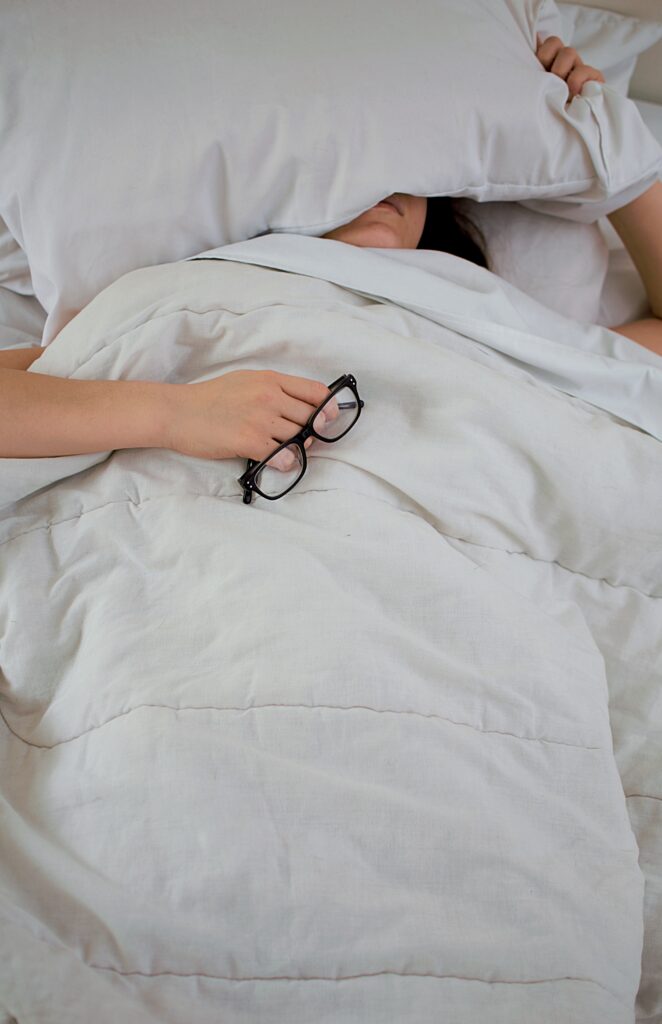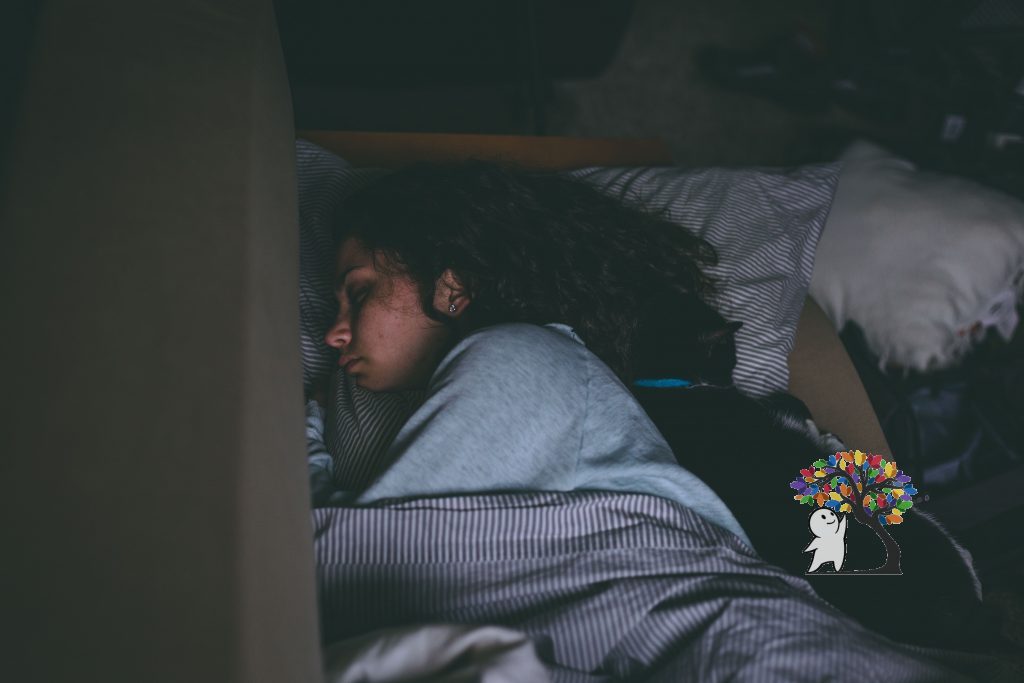What Does Your Sleep Schedule Reveal About You?

Intro
Some of us shoot up at 7 AM without the help of an alarm clock, while others only hit the pillow at 7 AM.
So what really dictates your choice of sleep schedule? The circadian rhythm of your body is responsible for regulating your sleep patterns (Schoedel et al., 2020). Genetics weighs less than half of your preference in your sleep schedule. Environmental, social and personal factors make up for the rest of your sleep schedule (Galit, 2015).
According to research reported in Insider 2022, there are six distinct types of sleepers. Morning larks are most productive from 9 to 11 AM, afternooners being the most active from 11 to 5 PM. Nappers wake up alert, but as the day progresses, their energy dwindles before reenergizing by mid-afternoon. Night owl tends to sleep much later. Swifts are those super robots that are alert for the whole day until they naturally fall asleep. And funnily, the last type are woodcocks. Those who are constantly running on 5% of their battery’s capacity from the moment they wake up to bedtime.
So what does your choice of sleep schedule tells you? Here’s a comparison of the two extremes, a morning lark and a night owl.
Number 1, Morning larks are happier than night owls.
Studies showed that morning larks are happier and have higher life satisfaction compared to their night owl counterparts (Randler, 2007).
A large contributing factor to that is morning larks get better social support as they fit better into the majority of society that is most active in the daytime. Night owls have a tougher time integrating into society. Partially, they may not have the best familial relationship as they miss out on family times with their sleeping schedule (Giampietro & Cavallera, 2007).
In the morning larks’ workplace, they are able to be productive right from the get-go and operate easily in the standard 9-5 hours (“Is It Better to Be a Night Owl or Early Bird?”, 2022). And as such, morning larks tend to thrive in a corporate world.
Number 2, Night owls are smarter than morning larks.
Night owls are more intelligent than morning larks as opposed to the saying, ‘early bird gets the worm’. Night owls have better processing speed and better memory retention than morning larks (Roberts & Kyllonen, 1999).
In a separate study at University of Liege in Belgium, they found that both morning larks and night owls are both productive after waking up naturally, but morning larks’ productivity falls off after 10.5 hours of being awake. Night owls proved to be more consistent with their focus and productivity with faster reaction time(Begley, 2022).
However, night owls perform poorly academically, but night owls are at a disadvantage, considering school always starts early (Kroes, 2022).
Number 3, Night owls are more creative than morning larks.
While both early risers and late risers do experience bursts of creative ideas, studies show that early risers do not have these as much as the night owls. It could possibly linked to morning larks usually do by a routine, and night owls have to learn early on to be creative to adapt to their out-of-norm living style (Viegas, 2022).
A study on art students in Taiwan showed that more than half of them feel more creative after 10 PM (Wang & Chern, 2008). Creativity strikes most when the mind wanders. Night owls are left alone to a quiet atmosphere without the hustle and bustle of the city, allowing their minds to freely roam (Edwins, 2022).
Conclusion/Final Thoughts
Take everything with a grain of salt.
There’s little research and much-needed studies on sleep, personality and behaviour. And most of us are not just a morning lark or night owl but a mix of both (Espie, 2022).
What’s most important, regardless of your sleep schedule, is that you have a good cycle of light and deep sleep, and you can wake up refreshed.
References
Begley, S. (2022). The Brains of Early Birds and Night Owls. Newsweek. Retrieved 11 July 2022, from https://www.newsweek.com/brains-early-birds-and-night-owls-221768.
BLASZCZAK-BOXE, A. (2022). Night owls and early birds have different personality traits. Retrieved 13 July 2022, from https://www.cbsnews.com/news/night-owls-and-early-birds-have-different-personality-traits/#:~:text=In%20a%20recent%20study%2C%20researchers,tend%20to%20be%20more%20persistent.
Caci, H., Robert, P., & Boyer, P. (2004). Novelty seekers and impulsive subjects are low in morningness. European Psychiatry, 19(2), 79-84. https://doi.org/10.1016/j.eurpsy.2003.09.007
Edwins, A. (2022). People Who Sleep Late Are Actually Smarter And More Creative. Retrieved 13 July 2022, from https://www.linkedin.com/pulse/people-who-sleep-late-actually-smarter-more-creative-edwin-andrews/
Espie, C. (2022). Sleepio. Retrieved 13 July 2022, from https://www.sleepio.com/articles/sleep-science/do-you-really-get-people-who-are-owls-and-others-w/#:~:text=However%2C%20in%20truth%2C%20most%20of,as%20well%20as%20sleep%20timing.
Giampietro, M., & Cavallera, G. (2007). Morning and evening types and creative thinking. Personality And Individual Differences, 42(3), 453-463. doi: 10.1016/j.paid.2006.06.027
Is It Better to Be a Night Owl or Early Bird?. Healthline. (2022). Retrieved 11 July 2022, from https://www.healthline.com/health/sleep/night-owl-vs-early-bird#night-owls.
Jarrett, C. (2022). Early risers and night owls: A neuroscientist explains who is happiest | BBC Science Focus Magazine. Sciencefocus.com. Retrieved 11 July 2022, from https://www.sciencefocus.com/news/early-risers-and-night-owls-a-neuroscientist-explains-who-is-happiest/.
Kroes, D. (2022). Night Owls Are Smarter & Have Higher IQs | Peninsula Doctor. Peninsula Doctor. Retrieved 11 July 2022, from https://www.peninsuladoctor.com/blog/night-owls-are-smarter-more-creative-have-higher-iqs/.
Randler, C. (2007). Morningness–Eveningness and Satisfaction with Life. Social Indicators Research, 86(2), 297-302. https://doi.org/10.1007/s11205-007-9139-x
Roberts, R., & Kyllonen, P. (1999). Morningness–eveningness and intelligence: early to bed, early to rise will likely make you anything but wise!. Personality And Individual Differences, 27(6), 1123-1133. https://doi.org/10.1016/s0191-8869(99)00054-9
Schoedel, R., Pargent, F., Au, Q., Völkel, S., Schuwerk, T., Bühner, M., & Stachl, C. (2020). To Challenge the Morning Lark and the Night Owl: Using Smartphone Sensing Data to Investigate Day–Night Behaviour Patterns. European Journal Of Personality, 34(5), 733-752. https://doi.org/10.1002/per.2258
Scientists say there may be 6 types of sleepers, from ‘night owls’ to ‘woodcocks.’ Here’s how to find which one you are.. Insider. (2022). Retrieved 11 July 2022, from https://www.insider.com/which-chronotype-are-you-night-owl-early-bird-napper-woodcock-2019-6.
Viegas, J. (2022). Night owls are more creative › News in Science (ABC Science). Abc.net.au. Retrieved 11 July 2022, from https://www.abc.net.au/science/articles/2006/12/13/1810399.htm.
Wang, S., & Chern, J. (2008). The ‘Night Owl’ Learning Style of Art Students: Creativity and Daily Rhythm. International Journal Of Art &Amp; Design Education, 27(2), 202-209. https://doi.org/10.1111/j.1476-8070.2008.00575.x
Nimrod, Galit. (2015). Early Birds and Night Owls: Differences in Media Preferences, Usages, and Environments. International Journal of Communication. 9. 133-153.




Responses